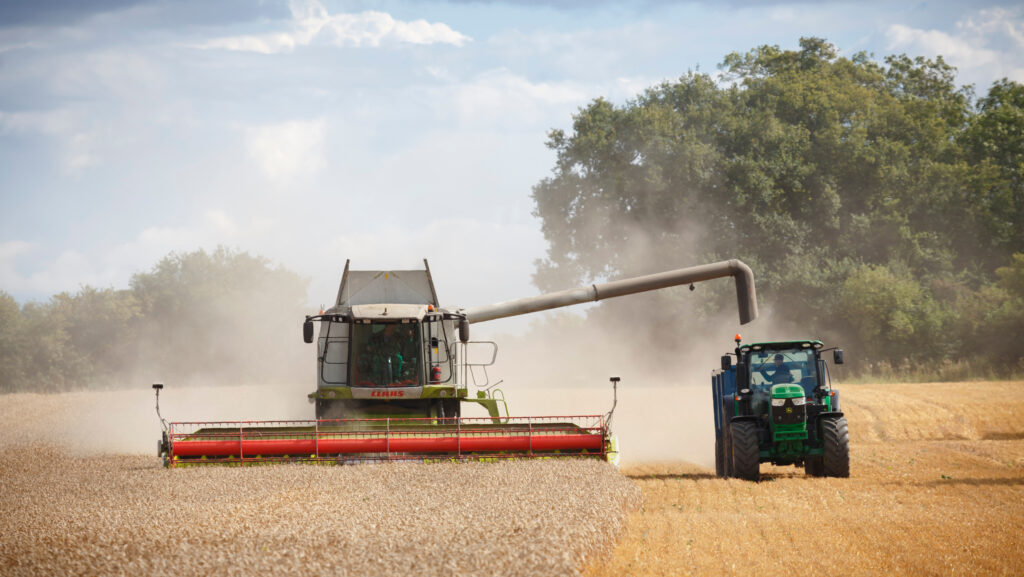Farming partnership appeal case highlights dispute consequences
 © Adobe Stock
© Adobe Stock A recent Court of Appeal case had to consider what a partner was entitled to on their retirement from a farming partnership.
This was the culmination of a long-running, complex and very costly legal dispute between Suzanne Proctor and her brothers Philip and James.
Suzanne resigned from the family farming partnership in 2010. At that time the partnership was between Suzanne, her father Geoffrey and her brothers Philip and James.
No mention of financial terms
There was no provision in the partnership deed for one partner unilaterally to resign, but the other partners accepted that she had ceased to be a partner. Nothing was said about any financial terms at the time.
After the deaths of her parents in 2013 and 2014, Suzanne brought a claim against her brothers and others in relation to family trusts, estates and the partnership.
See also: How limited partnerships can smooth the succession path
Aspects of this dispute first came before the High Court in 2018, with judgment in 2019, part of which was appealed.
This resulted in the decision that the partnership had a protected tenancy under the Agricultural Holdings Act 1986 across most of the family farm of about 242ha.
A further High Court hearing in April 2022 upheld Suzanne’s claim that she was entitled to the value of her share in the partnership assets at the date of her resignation in 2010, with her claim being limited to a quarter share in the (then) value of the farm tenancy.
March appeal hearing
Her brothers took this to appeal, heard in March this year, which again upheld Suzanne’s claim.
In his judgment, delivered on 9 April, Lord Justice Nugee said Suzanne was entitled to a quarter share in the value of the tenancy, to be paid by Philip and James, and that the value should be arrived at by an inquiry and not based on the book value of nil.
Interest was also due, at 5%, from 8 July 2010, the date of Suzanne’s resignation.
“…the right of the outgoing partner to payment for her share of the net assets is simply a recognition of the fact that her interest is measured by her ‘right to a proportion of the surplus after the realisation of the assets and payment of the debts and liabilities of the partnership’, and that if the other partners have taken over and used her property without payment, they should pay her for that interest,” said Lord Justice Nugee.
“If this causes difficulties in a partnership such as the present, I do not think the solution is to deny her any payment for her property.
“I think it is for those who set up family farming partnerships, often for tax reasons, to consider carefully how to reconcile the interests of those partners who wish to carry on farming, and of those who wish to realise their property, and make provision accordingly, either in the partnership agreement or in an ad hoc agreement when one of them wishes to withdraw.”
The value of Suzanne’s share must now be arrived at, entailing more cost, time and stress for those involved.
Clarify partnership agreements
This case demonstrates yet again the need for clear agreements and communication, says Tom Bradfield, a solicitor with law firm Burges Salmon.
“Within family partnerships, the partners may sometimes feel it is easier to leave things unsaid than to clarify the terms of an exit from a partnership. As this case sadly demonstrates, that only stores up problems for the future.
“The court decided that nothing had been agreed about what should happen to Suzanne’s share in the partnership assets when she retired.
“The retirement meant only that she did not want to be in business with her family any more. That was not the same as agreeing to sell or give away her financial interest in the partnership.
“There was the opportunity at her retirement to come to an agreement at that point in full and final settlement, but the door was left open.
“The vast majority of well-drafted agreements include several paragraphs covering the ground on the financial terms of retirement from a partnership.
“It’s never too late to review an agreement but the longer you leave it the more difficult that can become.”
Cost of ‘litigation habit’
Comments added to the judgment by Lord Justice Peter Jackson, one of the three Appeal Court judges in the case included that, even after two substantial trials and two substantial judgments on appeal, these parties still have to engage in the valuation process provided for by the judge.
The court heard that disputes continue about the basis of that valuation and about interest.
“Before those go any further, I hope the parties might reflect on what this sad family breakdown has cost them already (and I speak only in financial terms),” he said.
“We were told that the legal costs of the proceedings leading to the 2022 judgment and to this appeal already exceed £850,000.
“If the costs of the proceedings leading to the 2019 judgment and appeal are added, the total costs are very much higher than that.
“Whatever the value of a quarter share in the AHA tenancy, the cost of further litigation about it is likely to be disproportionate. These assets were built up by the grandparents and parents for the benefit of their children.
“The older generations may have had an aversion to paying tax, but the younger generation’s litigation habit is at least as great a threat to the family’s hopes. The remaining disputes cry out for mediation.”
Partnership law
When there is no written partnership agreement, or where an agreement is silent on an issue, then the Partnership Act 1890 dictates what will happen.
This legislation often results in unsatisfactory outcomes for farming families. Partnership disputes remain a prime area of costly litigation, with new issues for the courts to consider, despite the age of the legislation.
